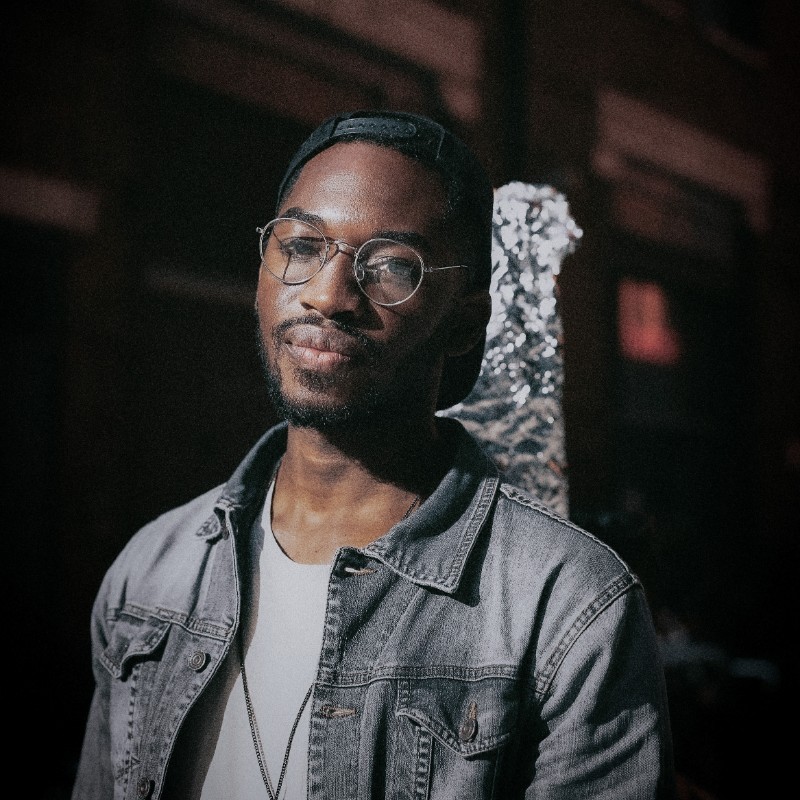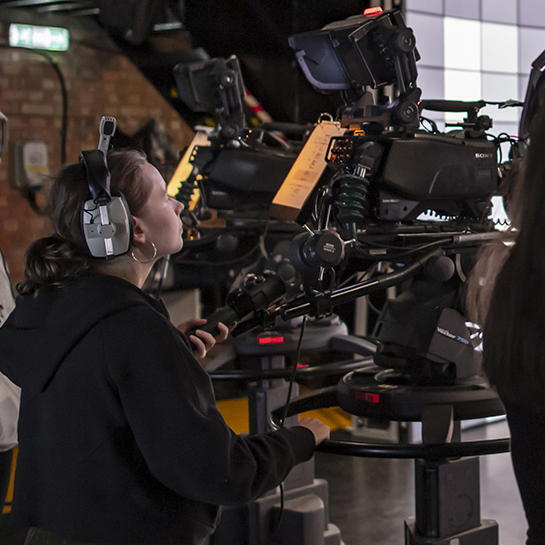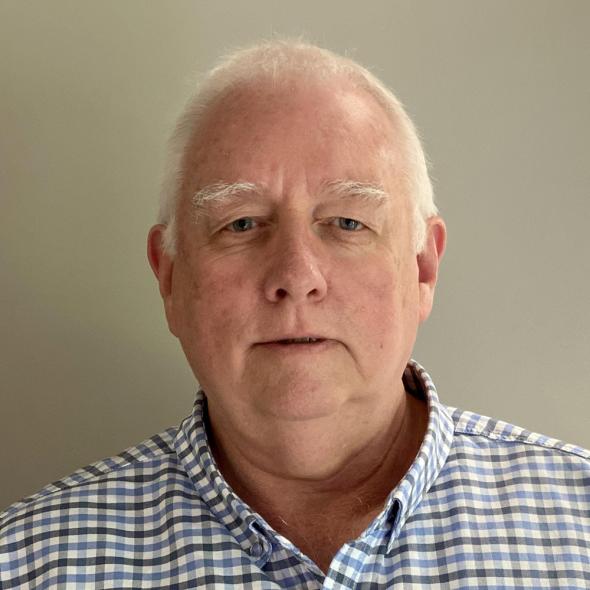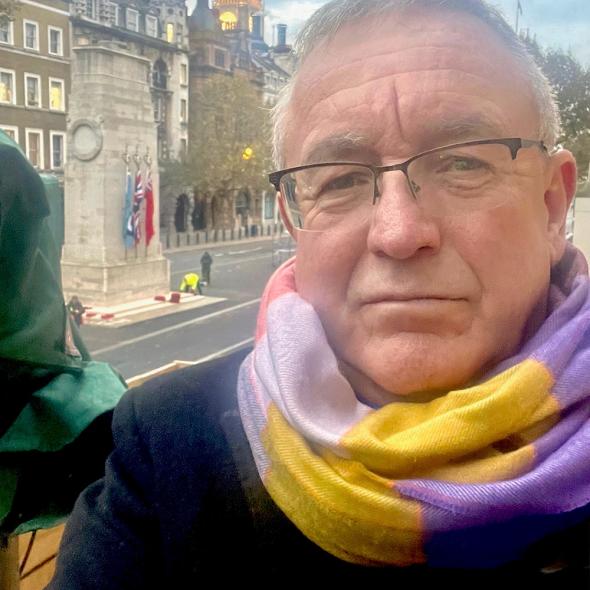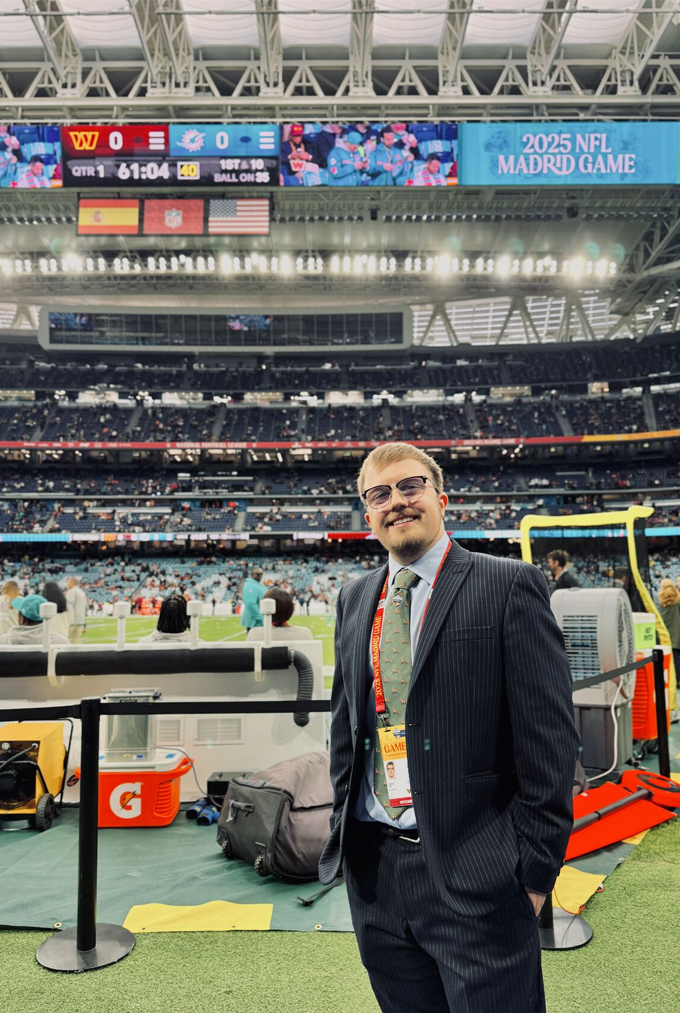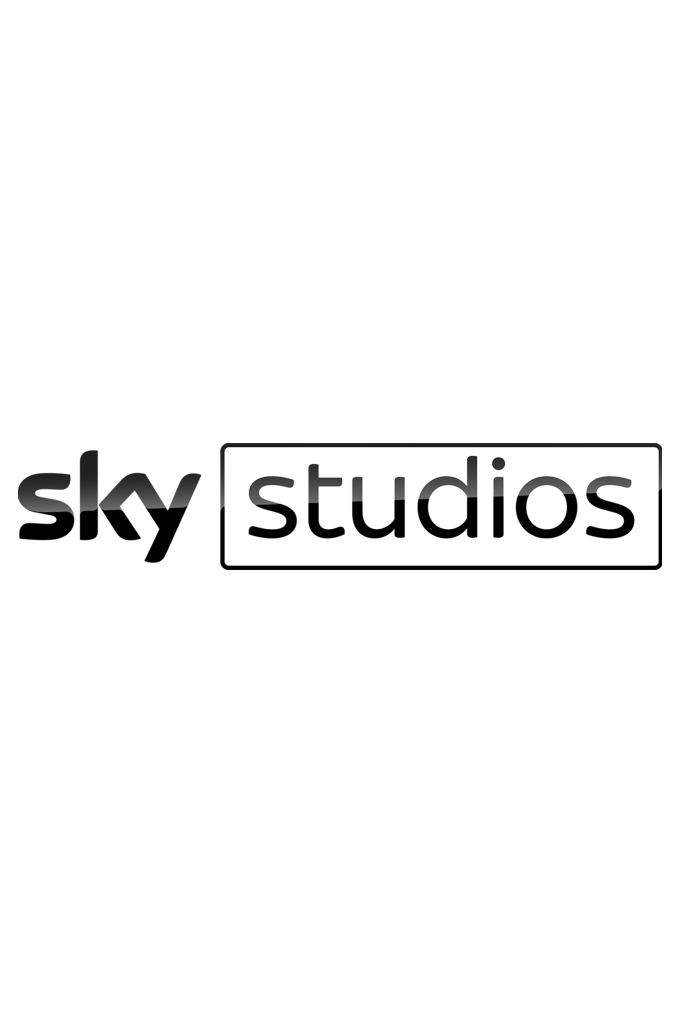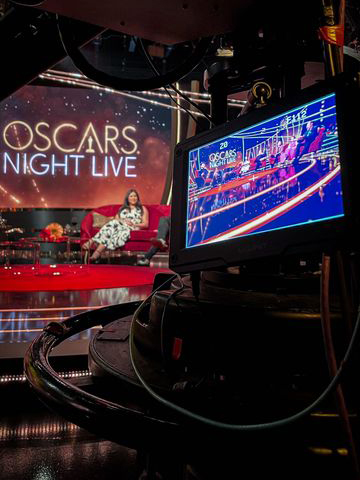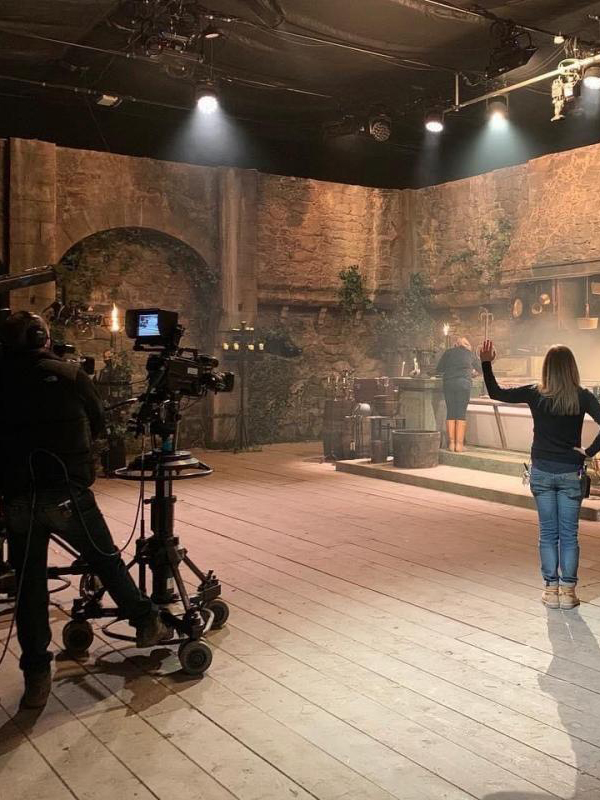COURSE OVERVIEW
Do you have a great eye for a shot? Do you want to bring great TV shows to life?
This unique 12-month MA course aims to prepare you for a successful future as a camera operator in live and recorded multi-camera studio television production. It is run in partnership with Sky, the UK’s largest pay-TV broadcaster, where you'll complete a work placement as part of the course.
Content Tabs
One of the key benefits of this course is that you’ll closely collaborate with students on other courses to shoot multi-camera TV productions in our state-of-the-art 4K television studio – equipped with the latest Sony cameras as used across the Industry. You will work on multiple genres including sport, music and drama and complete a six week placement at Sky where you will train on other industry standard equipment whilst working on current Sky productions.
Cameras for Television Production is a specialism within our Cameras, Sound and Vision Mixing for Television Production MA course.
Sky guarantees to employ at least one eligible graduating camera operator, sound recordist or vision mixer each year.
During the course, you will:
- Practise the core skills of camera operators: positioning, framing and focus.
- Learn to use broadcast cameras, repositioning and changing shot as the director demands while the vision mixer cuts and mixes the show.
- Learn to develop shots, moving with artists or in sympathy with music to create dynamic and exciting television.
- Begin to light simple interviews and more complex multi-camera lighting techniques.
A proven interest in multi-camera production, a lively interest in television entertainment and a willingness to work as part of a team are essential. We are looking for people who are practically minded and who have a good general education although there are no specific educational requirements for this course.
While many applicants will have a degree from a British or overseas university, we will consider applicants who do not have a degree if they have an impressive portfolio, a creative track record or an alternative qualification.
International students Visa and English language requirements
If you have any questions, please email info@nfts.co.uk
The following item(s) should accompany your online application:
- A description of a television production. Please tell us about a television production that you have been involved with or that you have observed. Please detail some of the technical production challenges which were faced in realising the project and in what ways you may have done things differently or enhanced the production. Include information on what preparation the production team would have needed to undertake. If you have not worked on or been involved in a television production, then please describe how you think a television show would be made. This can be a show of your choice and you should include technical aspects such as how many cameras you think are used, what the sound requirements would be, any technical challenges that may be faced etc. (approx 500 words).
- A portfolio of photos. It should contain still photographs that you have taken. You may supply prints, digital media or a URL to a collection of your photographs. Please do not supply videos or stills taken from video files.
Applications will close at 23:59 on the day of the deadline, shown at the top of this page.
Funding Available
The NFTS awards more scholarships and bursaries to British students, relative to the size of our student body, than almost any other educational institution in the UK. If you’re successful at gaining a place on the course, you will be given further information on how to apply for one of these scholarships.
Upcoming Events
Tutors
Student Showcase
Hear directly from our students specialising in Cameras, Sound and Vision Mixing for Television Production and take a look inside our on-site 4K Television Studio and TV Stage!
Thrifted (trailer)
2022 graduate television production
Director - Marina Hofling
Producer - Adriana Steinke
Cameras - Peter Saunders, Joshua North
Cameras for Television Production Diploma students work on a number of Television Entertainment MA graduate productions, which can be shot on location, inside the 4K Television Studio or a mixture of both.


